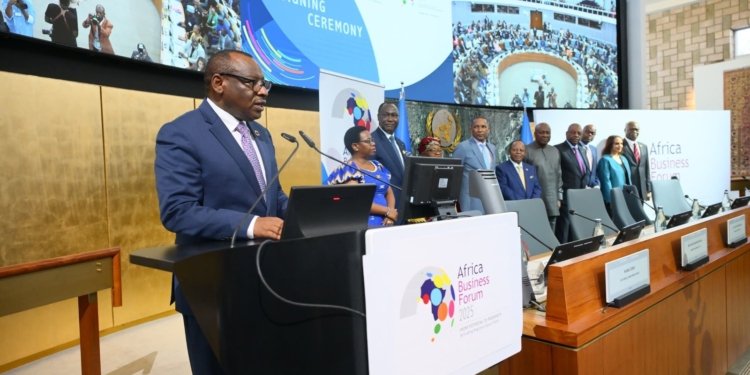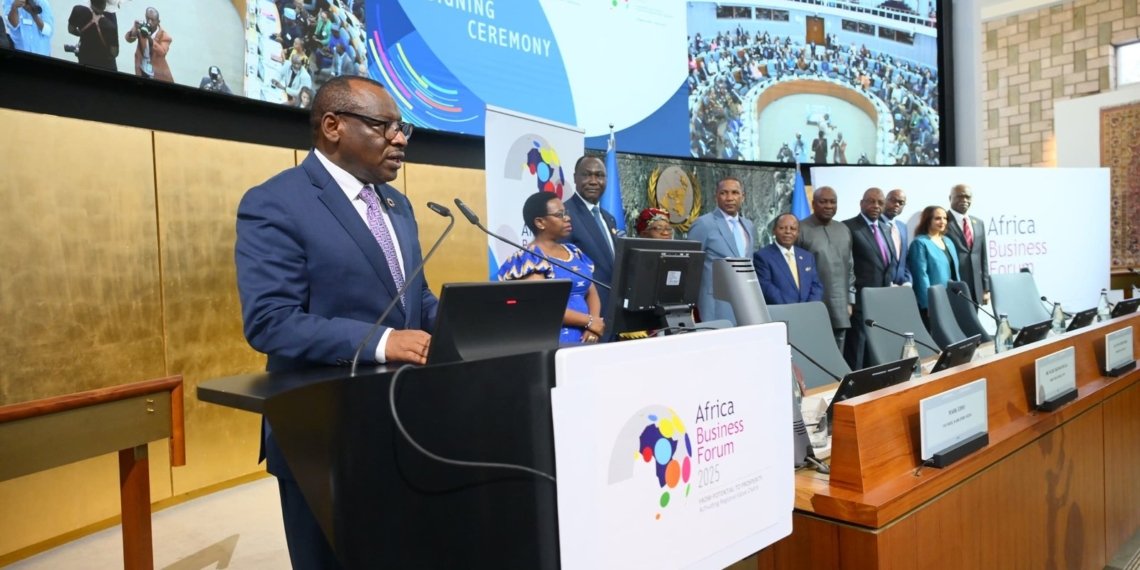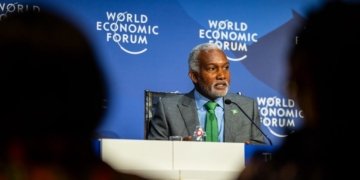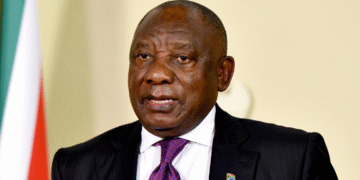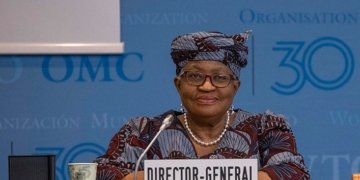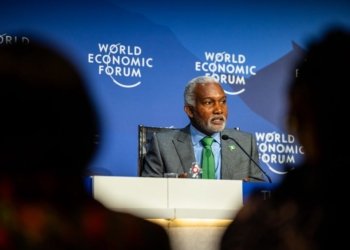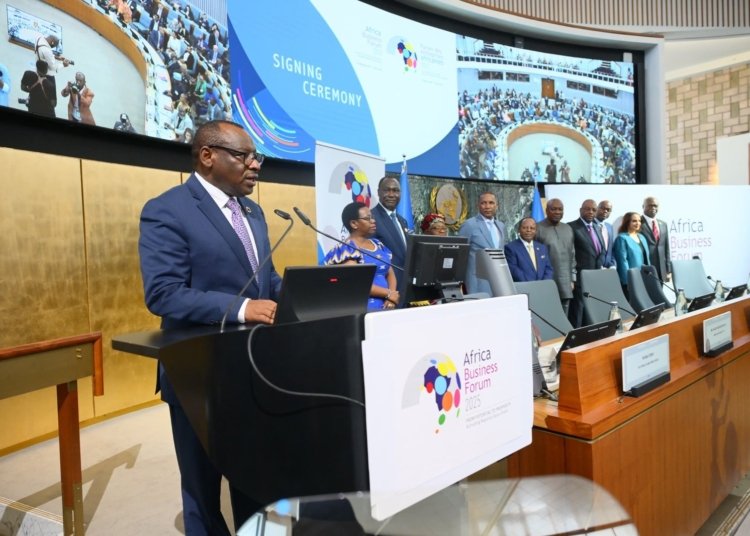ADDIS ABABA, Ethiopia — The time for gradual change is over—Africa must industrialize with urgency to unlock its full economic potential, leaders and experts declared at the 2025 Africa Business Forum on Monday in Addis Ababa.
With food insecurity, trade barriers, and dependence on raw commodity exports still hindering progress, the call for bold, immediate action echoed throughout the event.
“The time has come to rewrite Africa’s narrative from a continent of untapped potential to a global powerhouse of production, innovation and economic self-sufficiency,” said Claver Gatete, executive secretary of the United Nations Economic Commission for Africa (ECA).
He added: “We can no longer afford to export raw commodities and import finished products at high cost. An Africa that prospers is one that embraces industrialization, champions value addition and advances regional integration.”
Industrialization as the Path to Economic Independence
With over 60% of the world’s uncultivated arable land, Africa has the resources to feed itself—yet it remains heavily dependent on food imports.
“Africa has over 60% of the world’s uncultivated arable land, yet remains heavily dependent on food imports. This paradox must be addressed,” said Samaila Zubairu, president and CEO of the Africa Finance Corporation.
He urged African nations to adopt modern agricultural practices: “We must embrace modernization in agriculture. Mechanization and climate-resilient crops are crucial to addressing low productivity and ensuring food security.”
The African Continental Free Trade Area (AfCFTA)—seen as a game-changer for regional economic growth—was a central topic of discussion.
“Africa faces food insecurity, but we have the capacity to export grains within our continent. We must eliminate tariffs on agricultural products to strengthen regional value chains,” said Wamkele Mene, secretary-general of the AfCFTA.
Botswana’s President Duma Gideon Boko highlighted the role of regional collaboration in boosting agricultural exports.
“We need to strengthen channels of collaboration so that Botswana’s beef can reach the African continent quicker and easier under the AfCFTA,” he said.
He also emphasized the country’s ambitions in vaccine production: “We’ve produced quality vaccines, and we aim to scale up production to supply the entire African continent, especially for foot-and-mouth disease. Botswana’s ambition is to set up production facilities for vaccines in other African countries and support our neighbors.”
Infrastructure and Investment: A Foundation for Growth
Beyond agriculture, leaders stressed the need for resilient infrastructure to support industrialization. Ethiopia’s President Taye Atsekselassie emphasized its importance in mitigating future risks.
“Resilient infrastructure is imperative to withstand climate change impacts and mitigate future risks,” he said.
He also made a strong case for investing in human capital: “Investing in human capital is crucial. Education, skills development, and innovation are key to driving Africa’s manufacturing sector and regional value chains.”
On financing Africa’s transformation, he stated: “Addressing resources mobilizing and financing gap is critical. Africa must take control of its destiny to ensure sustainable prosperity for millions.”
His words were echoed by Dr. Monique Nsanzabaganwa, who emphasized the role of regional cooperation and private sector involvement in industrialization:
“Regional cooperation, intra-African investment, and private sector participation are key to building efficient regional value chains,” Nsanzabaganwa said.
She further highlighted the potential of these efforts to drive job creation: “Regional value chains have the potential to enhance local production networks and create jobs for our youthful population.”
Trade Barriers Must Be Removed for Africa to Thrive
Ghana’s President John Dramani Mahama warned that Africa’s economic future depends on eliminating trade barriers.
“Without youth opportunities, it’s a ticking time bomb,” he said. “To thrive under AfCFTA, we must fix trade barriers—better roads, rails, ports, and stronger partnerships.”
A strong call for local production and consumption came from Dr. Ngozi Okonjo-Iweala, director-general of the World Trade Organization (WTO).
“We must look inward and ask: how many of us are consuming our own products?” she said. “If we are manufacturing here and still buying from elsewhere, how will we support our economies?”
She urged African countries to take action: “Let’s be the change we want. If we want to consume and produce locally, we must stop buying products from elsewhere and start investing in our own industries.”
A Defining Moment for Africa
The forum concluded with a commitment to accelerate AfCFTA’s implementation. The UN Economic Commission for Africa (ECA) and the AfCFTA Secretariat signed a memorandum of understanding (MoU) to strengthen collaboration.
The agreement aims to boost intra-African trade and accelerate Africa’s economic transformation.
As Gatete put it: “The time for incremental change is over. Africa must industrialize with urgency.”
Leaders agreed that for Africa to move beyond potential and become a global economic powerhouse, the time to act is now.
